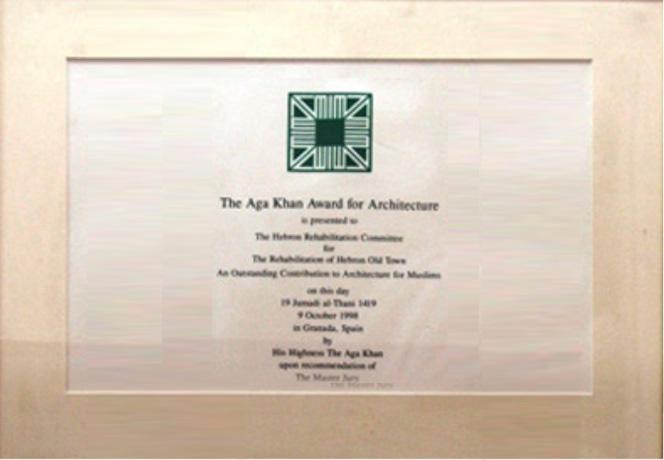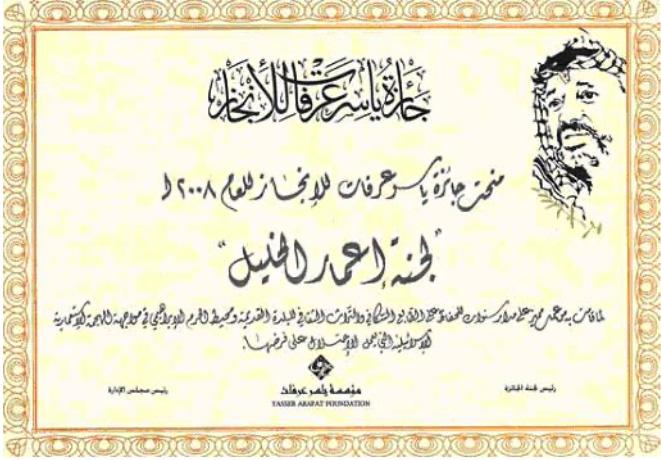Hebron Rehabilitation Committee
- Reviving the Old City by renovating buildings, reusing abandoned houses, and rehabilitating the infrastructure while preserving its cultural heritage and the city's architectural fabric
- Improving living conditions for the Palestinian population by restoring homes, enabling unity between the Old City and the new one, and providing various services to enhance living and working conditions
- Boosting trade and the economy, while promoting local and foreign tourism
- Launching projects to combat unemployment and poverty, while providing jobs for local people
الجوائز
The Hebron Rehabilitation Committee is dedicated to preserving, restoring, and celebrating the important cultural and social history of the Old City in Hebron. The presence of settlers and soldiers inside the Old City of Hebron, and subsequent military closures, has affected every aspect of life for the Palestinians in and around the area. As a result of the harsh and increasingly unstable conditions in the Old City, residents left, bringing commerce almost to a halt in an area that had once been the commercial heart of Hebron.
Hebron Rehabilitation Committee acknowledges Hebron's religious and cultural status and strives to create an old city that recognizes the determination of the people of Hebron, their institutions – municipal, communal, and academic – and the Palestinian leadership, to cherish the cultural heritage of the city and to protect it.



